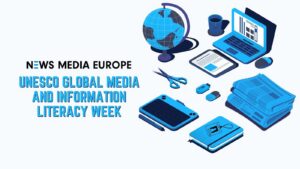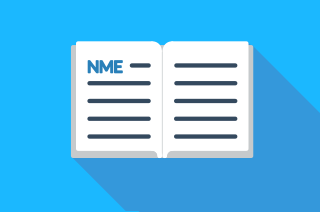From 27 to 31 of October, the world marks UNESCO’s Global Media and Information Literacy Week. This year’s theme, “Minds over AI – MIL in Digital Spaces” captures the urgency of today’s reality, where the line between authentic information and synthetic content is increasingly difficult to discern.
Generative AI systems are transforming the landscape of content creation, making it unprecedentedly easy to produce persuasive and manipulative material at scale. These technologies have already been misused to dominate online conversations, imitate credible news sources, and circulate realistic yet fabricated images, videos, and audio. Such manipulation has far-reaching consequences, distorting public debate, influencing political processes, and even altering the outcomes of elections or public opinion on key societal issues.
There is an urgent need to close Europe’s growing AI literacy and digital skills gap. In her 2024 – 2029 political guidelines, European Commission President Ursula von der Leyen stressed the importance of enhancing “societal resilience and preparedness through increased digital and media literacy.” The Digital Decade Policy Programme echoes this vision, targeting that at least 80% of persons aged 15 – 75 should have at least basic digital skills by 2030. Yet, as of 2023, only 56% of that population group achieved this.
News Media Europe welcomes the European Commission’s Creative Europe Call to support innovative cross-border media literacy projects that strengthen citizens’ resilience against disinformation and information manipulation. However, it is important that further action is taken to promote public awareness of the value of credible journalism, to further reduce the influence of disinformation. The EU should launch widespread media literacy campaigns under SDGs 4 (Quality Education) and 16 (Peace, Justice, and Strong Institutions). These campaigns should:
- Highlight the contrast between credible journalism and disinformation on social media.
- Equip citizens with the skills to critically evaluate information sources.
- Collaborate with educational systems and civil society organizations to create engaging,
- multilingual educational content.
- Consider tangible actions, such as financing news subscriptions for schools, to make credible journalism accessible to youth.
Media and information literacy is central to addressing the challenges of the 21st century. Strengthening citizens’ critical thinking, promoting trustworthy journalism, and fostering digital skills are essential steps toward a democratic, resilient, and sustainable information ecosystem in Europe.











